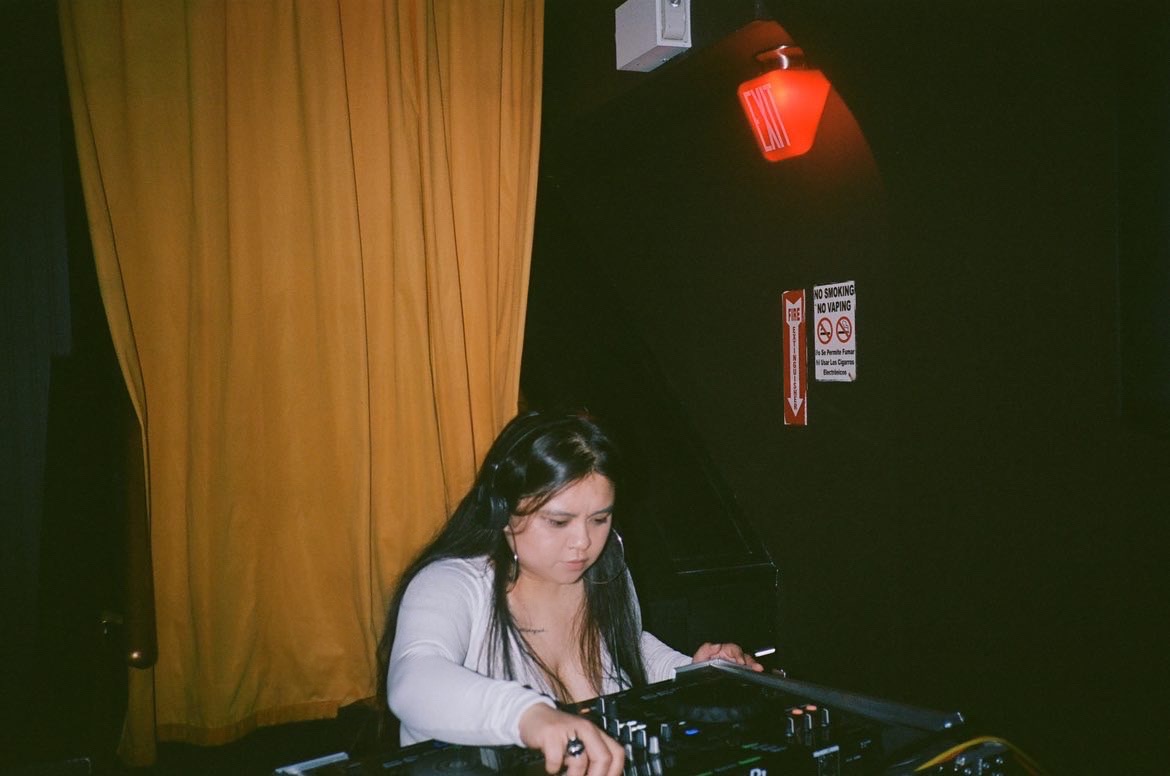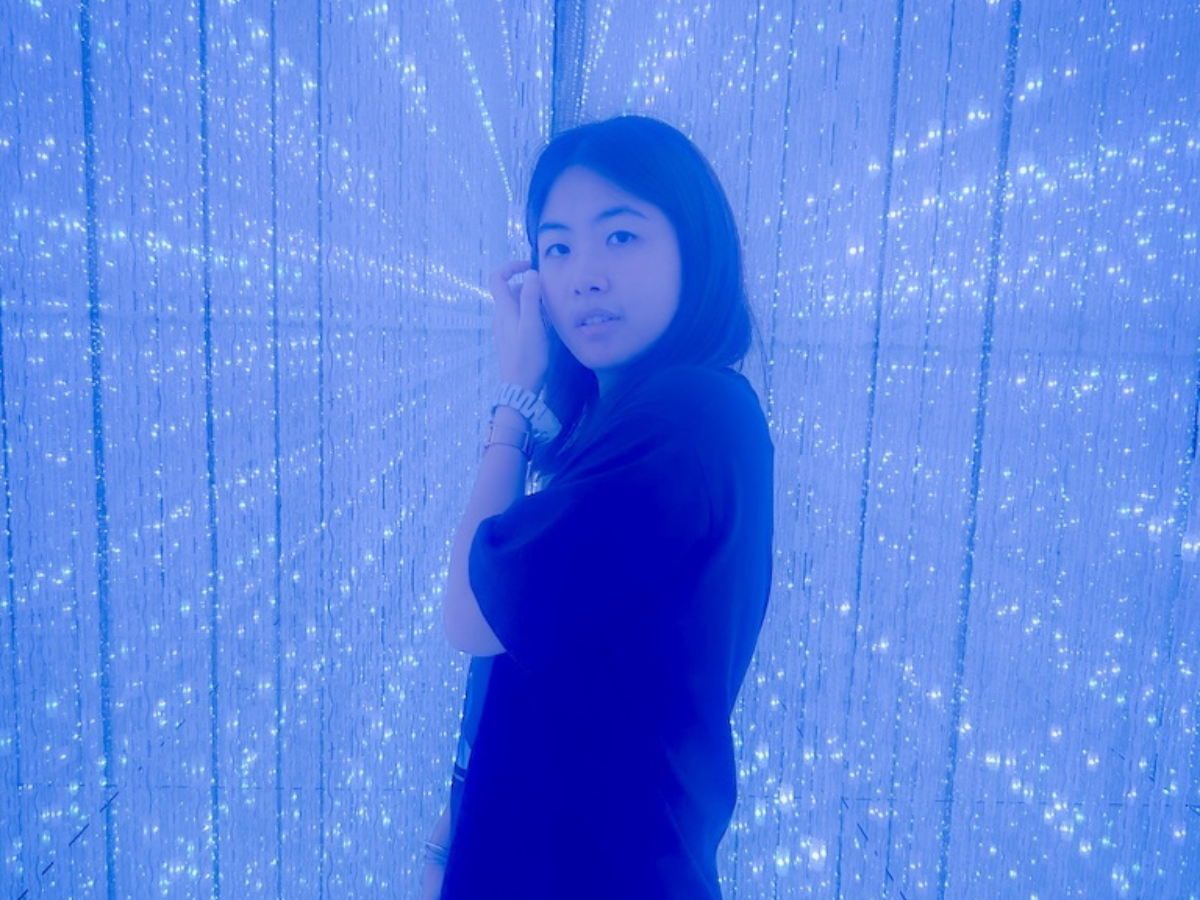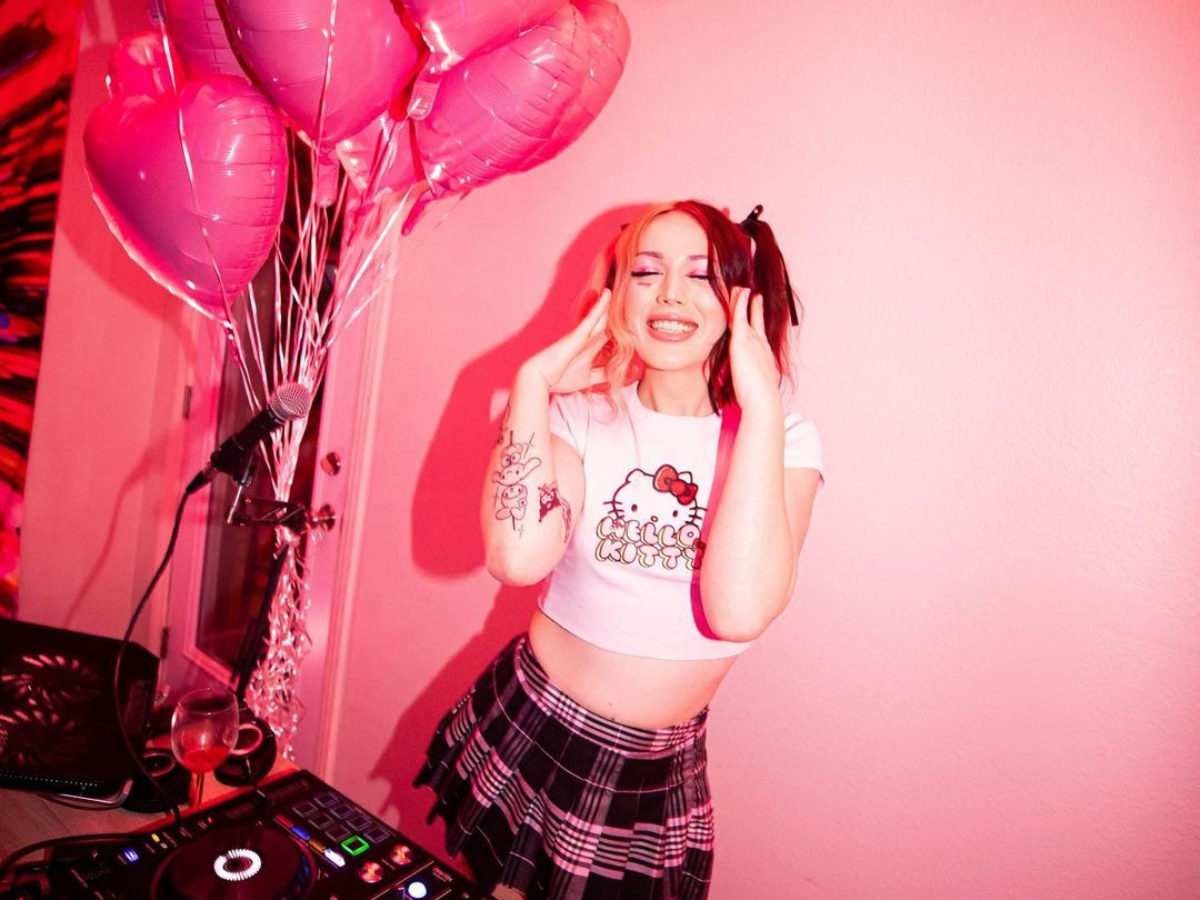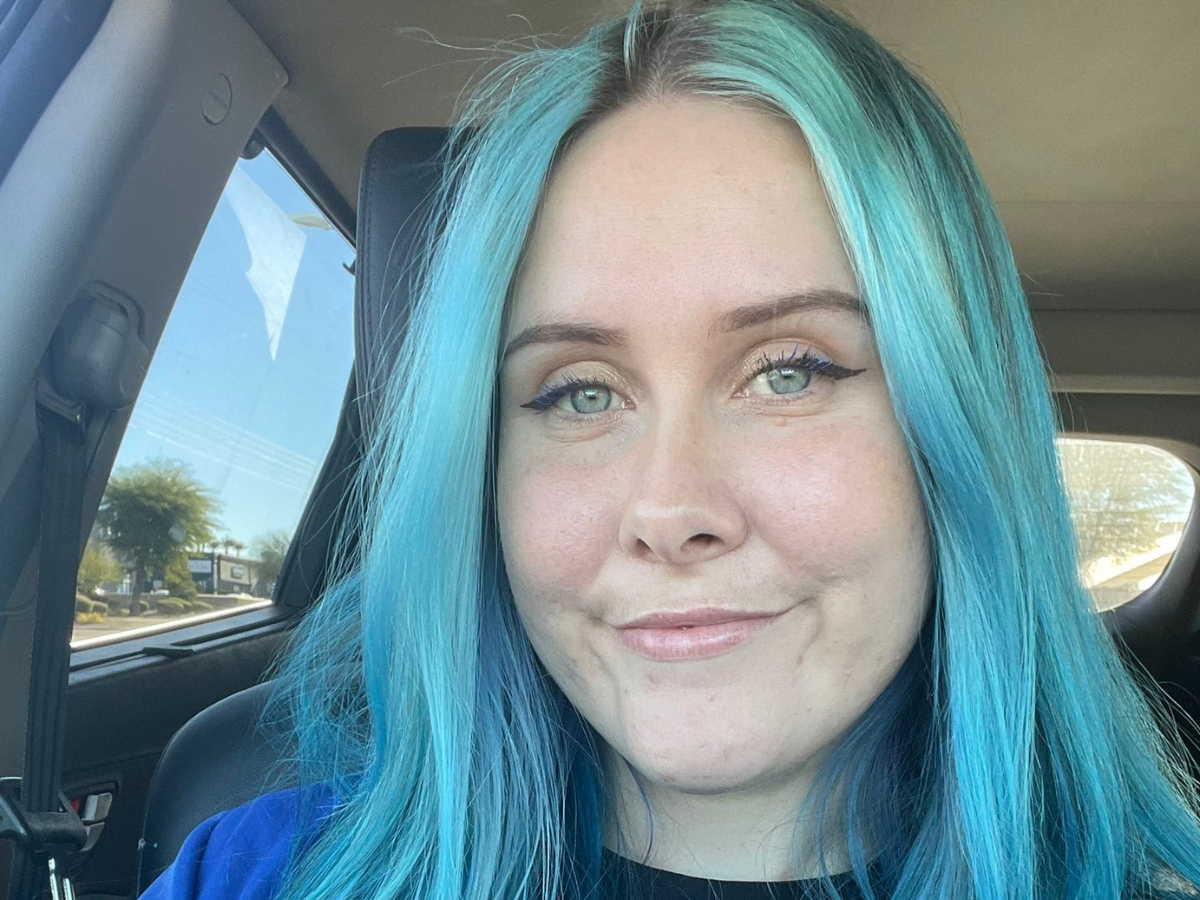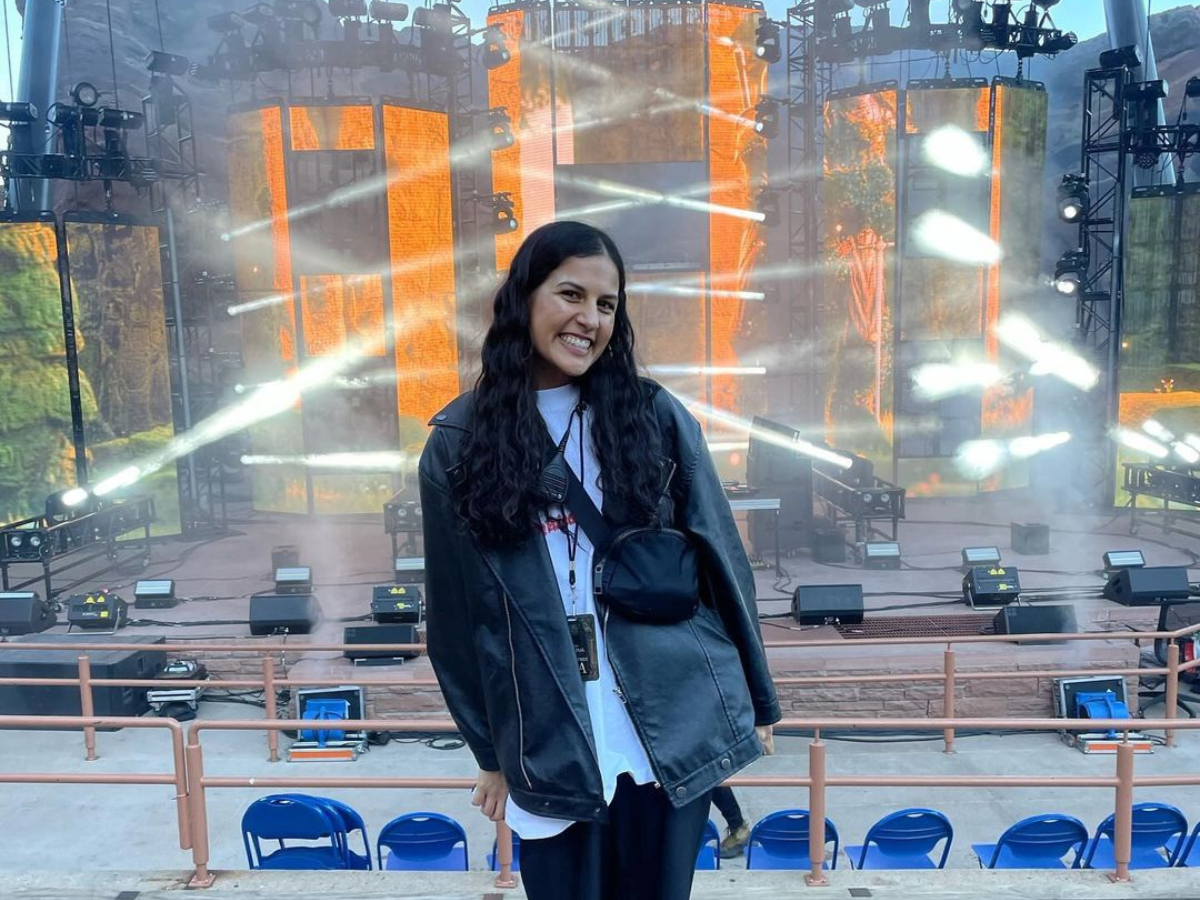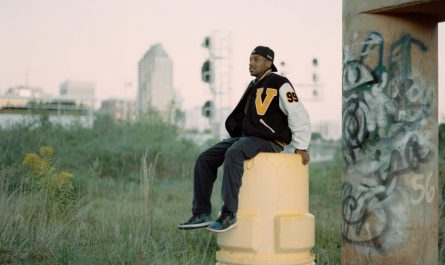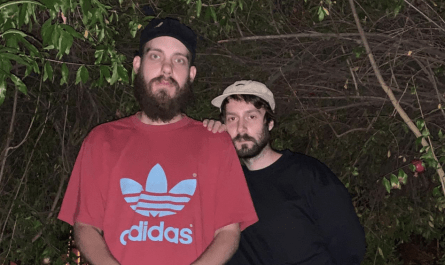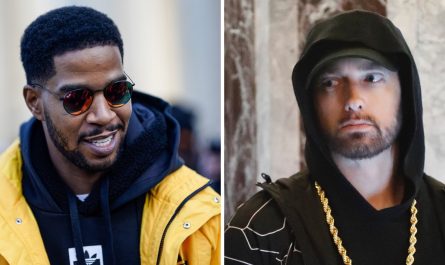For there to be true balance and unity in this world, there needs to be conversation, change, and serious execution. Highlighting and supporting the spirits that make this planet continue to run and not fall apart completely. Making an everlasting impact on lives every day. Since March 1987, the birth of Women’s History Month has continued to shine a glistening light on women from all over who have truly worked their whole lives to make even the smallest difference possible in time itself. But it shouldn’t just last only a month. No, definitely not. There’s still so much work to be done, especially in this scene and overall environment!
The music industry is a long, dark, and sometimes coldhearted path. It’s no secret that the industry has a long history of marginalizing contributions made by women (especially women of color). In a male-dominated space, it’s a constant battle with countless struggles just to make their voices heard and recognized. Gross sexualization, accusations of plagiarism, and a general reluctance to give proper recognition to the raw talents of women are issues that continue to fester in 2024. To those of us who consider music to be our sacred “safe space” – one that transcends gender, race, age, etc. – this is wholly unacceptable. Notably, there have been many wonderful souls who have and who continue to bring a whole new light and spark to this creative spectrum. Disadvantaged from the get-go, always unapologetically themselves, never succumbing to outside pressure – these are the ones who deserve praise and acknowledgment for their hard work and dedication.
From Roxanne Shante, Salt-N-Pepa, Lauryn Hill, and Missy Elliot bringing hip-hop to a whole other level, to Ellen Allien, Wendy Carlos, Annie Nightingale, and SOPHIE who honored the true essence of electronic music, it’s pioneers and warriors like them that never backed down from a fight or let the draining effect of the real world destroy them entirely. These titans of the music industry made their mark while combating systemic oppression, misogyny, and patriarchy, always having to prove themselves while demanding respect on a daily basis. And those are only just a few from a list that could go on and on. This is a fact that rings true not only for the artists in the scene. From managers, A&R’s, photographers, journalists, and more, women continue to contribute day and night in order for others’ dreams to become a reality.
In honor of this beautiful month, we talked with a few incredible souls who have given the industry so much of their time, effort, and passion in order for this scene to feel welcoming and inspiring while paving their own road to success. We reached out to Arielle Lana LeJarde aka ariellenyc (HEADS KNOW), Mouna Dif (Quality Goods Records), Farrah, Maya Nauriyal (Kompass Music Group), VJ Kobra and KUREI! Each of these wonderful souls have shared their own experiences, what this month means to them, as well as what they think needs to change/improve in order for more women to feel inclusive, heard, and appreciated.
Arielle Lana LeJarde (aka ariellenyc)
Founder of HEADS KNOW || Reporter for Resident Advisor
Your passion, dedication, and hard work have shaped such a wonderful and progressive path for the music industry as a whole. From your powerful words as a music journalist, to becoming a top-tier event programmer, where and how did your journey in all of this start? What were some of the hardest challenges you had to face/overcome?
I actually started my journey in music as a blogger! For those of you who don’t know the lore, I was a writer—and eventually a short-lived editor—for FUXWITHIT and ended up getting freelance gigs at ThisSongIsSick, Festival Insider, and Gray Area. In all of these publications, I explored the idea of inclusion in dance music because diversity wasn’t something I saw a lot of in EDM.
A piece I wrote on the latter about sample snitching and interviewed some hip-hop historians, which led me to expand my beat from electronic music to also include hip-hop as well as pitch to larger publications. Through my journalism work, I started broadening my tastes and digging deeper into electronic music, which I found to be a lot more diverse than in EDM.
In 2021, I got a full-time job as a booking agent assistant, which exposed me to working in live events and in December 2022, I was asked to help throw a party by Half Moon, and that showed me I can curate lineups that are diverse and inclusive on my own. By May 2023, I launched my own party and platform called HEADS KNOW, which has been gaining a lot of traction and I’m so proud of it!
What does Women’s History Month mean to you as someone who’s been a part of this scene for so long and who’s seen so much?
Like most diversity months, Women’s History Month is just a reminder that we still need dedicated times like these to be celebrated. We should be celebrated, supported, and valued all the time, though.
Safety and inclusion of women will never feel natural until the people behind the scenes begin to be more inclusive.
How can we all work harder in the future in order for more women to feel more inclusive and safer in this environment? What do you personally want to see change or improved for a brighter and better tomorrow?
Hire women (especially women of color) on your teams! Safety and inclusion of women will never feel natural until the people behind the scenes begin to be more inclusive. We tend to start our own platforms because we’re tired of being the only ones in the room. With that being said, support the women who are making changes in the industry—we’re usually doing it on our own.
For the women who want their voices truly heard in a creative environment, what tips or words of advice would you bestow upon them?
Stop listening to men and start your own shit.
Follow Arielle on Twitter and Instagram
Farrah
Producer/DJ at Farrah
Your integrity, perseverance, and passion has led you down such a memorable and powerful path as a true artist. Tell us, where and how did your journey in this environment start? What were some of the hardest challenges you had to face?
Thanks for the kind words! Roughly 10 years ago, I was studying in California for my degree, and at the same time, all I wanted to do was to pursue a career of becoming a hip-hop choreographer. However, I quickly realized that I needed to constantly work on the craft on a daily basis in order to “compete” or stand out among others, which was just not possible to do due to numerous circumstances not aligning. I had a long thought about what I wanted to do after I graduated and came to the conclusion that I still wanted to have a creative career in music. That was the beginning of finding out about the beauty of music production.
One of the hardest challenges I have been facing in recent years is realizing that there is a glass ceiling for my music career due to where I am based. This glass ceiling has prevented me from reaching my goal of becoming a full-time touring artist, which would not be possible if I were to stay here in Hong Kong. It has prevented me from saying yes to several career-elevating opportunities, which was discouraging at the time. However, as I started to put aside that mentality, I realized that there are still countless ideas that I could execute within my control and that I should work with what I have instead of thinking grass is always greener on the other side.
I believe that real change starts when people start to talk about the issues/views more often and to bring progressive conversations into light instead of just sweeping under the rug and pretending that everything could just remain the same every year.
What does Women’s History Month mean to you as someone who’s been a part of this scene who’s witnessed so much?
To me, it is a time of reflection on whether this industry has progressed or changed. I believe that real change starts when people start to talk about the issues/views more often and to bring progressive conversations into light instead of just sweeping under the rug and pretending that everything could just remain the same every year. Just because there is a month dedicated to shedding light into it, it doesn’t end there. I also do believe in the power of uplifting others whenever there is a chance/opportunity to do so. Sometimes, a few words of encouragement can have a lasting impact on people’s lives.
How can we all work harder in the future in order for more women to feel more inclusive and safer in this environment? What do you personally want to see change or improved for a brighter and better tomorrow?
I think that when people approach us as simply artists because of our art instead of saying “this female producer/DJ is a sick artist,” that would switch the mindset of how we are always categorized and separated. In terms of show opportunities, I would still love to see more women headlining shows across different sectors/genres in music. For example, having one or two successful/popular women being the spearhead of each genre isn’t enough. There are a plethora of talented women who are unique and in their own lane but I still see only a handful of them headlining festivals, etc. I also do believe that when people choose to initiate a collaboration within the realm of music production, performing, and etc; please only do so when you truly respect their skills and them as a human being.
Once people join together and invite others who are also interested in the art no matter where they are on their creative journey, that’s when people can create a movement.
For the women who want their voices truly heard in a creative environment, what tips or words of advice would you bestow upon them?
I would say to seek out other creative people who are both similar to you and even others who are in other creative fields. Once people join together and invite others who are also interested in the art no matter where they are on their creative journey, that’s when people can create a movement. When there’s two people with the same mindset or goal, it would seem less lonely than one. When there’s a group of people, it will create an impact within friend groups, and that builds community. There is so much power in just connecting with one person because that one person can introduce you to another that may be in a similar situation as you. If there is no one around you that has a similar mindset, research on the Internet and reach out to people who may seem like they are active either around your vicinity or even far away. That’s how I connected with many like-minded people locally and internationally and kept me going all these years.
Follow Farrah on Twitter and Instagram
Mouna Dif
COO & Co-Founder of Quality Goods Records || Artist Manager at Kompass Music Group
As someone who’s become a strong veteran in the music industry as a whole, where and how did your journey in this environment start? What were some of the hardest challenges you had to face?
Thank you for your kind words; it’s truly been a humbling journey. My foray into the music industry began over 25 years ago, primarily as a creative – a singer/songwriter. During those early years, I experienced firsthand the challenges that artists face without a supportive team to protect their interests. From grappling with unfair deals to being taken advantage of in negotiations with labels and navigating murky waters around touring fees, I learned some tough lessons along the way.
However, these challenges were pivotal in my growth within the industry. They taught me invaluable lessons about the importance of advocating for oneself, understanding contracts thoroughly, and surrounding oneself with a trustworthy team. As I transitioned into a managerial role, I carried these experiences with me, determined to ensure that the artists I worked with didn’t encounter similar pitfalls.
What does Women’s History Month mean to you as someone who’s been a part of this scene for many years and who’s seen so much?
It’s a time to honor the vital contributions of women throughout music history and reflect on our ongoing journey towards gender equality in the industry. Many of these remarkable women often go unrecognized and unmentioned! For me, it’s a reminder to amplify the voices of female artists, executives, and behind-the-scenes professionals, and to support efforts for gender diversity and equal opportunities within our music community.
It’s not just about showcasing female artists; true change involves ensuring female representation in decision-making and executive teams.
How can we all work harder in the future in order for more women to feel more inclusive and safer in this environment? What do you personally want to see change or improved for a brighter and better tomorrow?
To create a safer and more inclusive space for women in the music industry, it requires collective action. Zero tolerance for harassment and discrimination is non-negotiable, demanding robust policies and procedures to address such issues. Moreover, increasing opportunities for women in leadership and behind-the-scenes roles is essential for reshaping the industry’s culture. It’s not just about showcasing female artists; true change involves ensuring female representation in decision-making and executive teams. It’s illogical to promote female artists while having them solely represented by male representatives. In-depth structural changes are necessary for a truly equitable industry.
Don’t take things personally: Rejection and criticism are part of the game, but it’s all about how you handle it. Develop a thick skin and keep pushing forward.
Lastly, do you have any tips or words of advice to the women who want to step into this industry?
- First up, resilience is key. This industry can throw some serious curveballs, but staying tough and bouncing back is how you make it through.
- Accept the unfairness of the game: Work hard, but also recognize that the industry isn’t always just. When you reach higher levels, extend a helping hand to other women starting out. Remember where you began.
- Don’t take things personally: Rejection and criticism are part of the game, but it’s all about how you handle it. Develop a thick skin and keep pushing forward.
- Last but not least, take care of yourself. While dedication is important, remember to prioritize your well-being. It’s not worth sacrificing your health and happiness for the job. Remember, we’re not saving lives here; it’s okay to find balance and enjoy life outside of work.
Follow Mouna on Twitter and Instagram
KUREI
Producer/DJ at KUREI
What does Women’s History Month mean to you as someone who’s been a part of this scene for many years and who’s seen so much?
Women’s History month in the industry is great in the sense that we all get the recognition and support we need year round, but to me it would mean so much more if that energy was carried throughout the year. It often times feels like a lot of major events, labels, and brands within the industry only pay attention to us this month and I would love to see them continue that support beyond just March.
Where and how did your journey in this environment start? What were some of the hardest challenges you had to face? Do you still face them today?
I started my journey in music back in my hometown in Orange County, mostly DJing in my room and any local parties I could. I moved to LA and began learning to produce and getting my first club gigs. The challenges feel never-ending at times, not being taken seriously, being accused of being ghost-produced, being overly sexualized or even fearing for my safety with certain people within the industry. Those definitely have continued throughout my career, and sadly I know the same is true for so many women in the scene.
How can we all work harder in the future in order for more women to feel more inclusive and safer in this industry? What do you want to see change or improved?
The biggest thing for me is for us to be treated as equals in the scene, for shows to bill us as we deserve, pay us as we deserve, and treat us on the same level as any of our male peers. As far as safety goes, I would love to see more accountability when it comes to harassment, assault, and abuse. It’s gotten better in the last few years but there are still way too many people thriving in the scene that get away with absolutely disgusting behavior and actions. Taking a stand against those people and listening to the women coming forward with their stories is so crucial for this change to happen.
You really have to be ready to fight for your life out here to do what you love.
Do you have any advice or tips for those wanting to join this industry to get their voices truly heard?
You have to truly work your ass off for this, especially in a scene that doesn’t take women as seriously you truly have to stand out so much. Put in the work, make friends to help motivate and inspire you, and keep you safe. It is an uphill battle but it is not impossible. You really have to be ready to fight for your life out here to do what you love. Having an amazing support group of women in the scene has been life-changing for me, and I don’t think I would be where I’m at today without my Kyra collective girls.
Follow KUREI on Twitter and Instagram
VJ Kobra
Visual Artist at VJ Kobra
As someone in the music industry, what does Women’s History Month mean to you?
Women’s History Month to me is when the rest of the world catches up for 31 days and acknowledges the talented, smart & passionate women in the industry. We are woven into this scene, from fangirls to tour managers to production leads. It’s great to see a spotlight be put on these ladies and I wish we could spread this type of love and recognition all year long.
One time I was questioned by the House LD about ‘if I knew what I was doing because the last girl they sent sure didn’t.’ Don’t worry, I made him eat his words.
Where and how did your journey in this environment start? What were some of the hardest challenges you had to face? Do you still face them today?
I got my start about 5 years ago after attending my first music festival. I was inspired by live visuals and dove head first into becoming the person running the giant LED walls at my favorite festivals. After researching, saving up & getting my gear I started to reach out to local VJ’s in my area asking to shadow them. I was able to get some events under my belt in 2019 before the world went into lockdown. That’s when my career took off. I did a bunch of visuals for the countless live streams for the next year and was picked up by Shlump as his VJ. Things took off after that.
Some of the hardest challenges I’ve faced since then are the constant need to prove myself, being ridiculed and labeled as ‘difficult’ for being honest about my lived experiences & generally just not feeling like I fit in or belong.
The constant need to be my absolute best comes into play because your abilities and expertise is doubted often. When I show up to a new FOH, I can be greeted by men who have never seen a woman do this job. Some truly think it can’t be done or that you slept your way into this position.. One time I was questioned by the House LD about ‘if I knew what I was doing because the last girl they sent sure didn’t.’ Don’t worry, I made him eat his words. And that shows the flip side of the reality of always having to be your best is that damn every woman VJ I know is extremely good at their job. Ironically they’re usually the person you can rely on to do a great job and the last person you need to doubt their skills.
Being ridiculed and shamed for sharing my lived experiences has been a really tough pill to swallow. I used to be very open and honest and share when I would experience sexism or harassment but the reactions have made me pull back. It was a shock to realize how many colleagues and fans don’t think sexism exists in EDM & make you the bad guy for speaking about it. Having your experiences invalidated & turned against you is a terrible feeling and something I still experience.
Not feeling like I fit in or belong has also been a struggle I’ve faced. It can be intimidating to be the only woman on a team full of men & as a more introverted person, it’s challenging to get comfortable in that situation. Many times I’ve walked into FOH or green rooms with my gear, clearly there to work, and been ignored by every man in that room. I’ve been denied entry to FOH, have my credentials questioned constantly, and just a general feeling of people looking at me like ‘why the heck is she here?’ It can get frustrating and discouraging at times. I am thankful for the men who make the effort to make me feel included and welcomed. It gets very lonely otherwise.
Take a look at your lineups and if it’s mostly men, something needs to change.
How can we all work harder in the future for more women to feel more inclusive and safer in this industry? What do you want to see changed or improved?
LISTEN TO WOMEN. Stop invalidating their lived experiences. Acknowledging that sexism DOES exist in this industry is the first step. I’ve had multiple situations with other artists, fans, promoters, etc who truly believe women simply need to work harder & that sexism doesn’t couldn’t possibly exist in EDM. We can’t change anything if people refuse to see the problem in the first place. Have these difficult conversations, it’s how we move forward. Ask how you can support them.
HIRE MORE WOMEN. Pass on opportunities to a woman you know would do great. Pay them fairly. Don’t throw ‘All Women Lineups’ once a year for brownie points. Diversify your lineups and production year-round. Take a look at your lineups and if it’s mostly men, something needs to change. This is where the ‘women just need to work harder’ mentality comes up. There are tons of talented women artists out there who are making major moves, there’s no reason I need to see the same 50 dudes on a lineup.
HYPE UP WOMEN. Share their accomplishments and congratulate them, make them known, and show the world! The more eyes we get on their work, the better. You have no idea how far a share with some kind, genuine words can go. And it’s so easy to do 🙂
DO THE INNER WORK. This kinda relates to my first point. There is a bias and it’s something you have to actively unlearn and work on. I know it exists because I, as a woman in this industry, have had biased thoughts towards other women. I’ve had to check myself and acknowledge that internalized misogyny. I ask my male colleagues and everyone to do the same.
CALL OUT THE BS. I appreciate the men who will go to battle for me and other women and call out any sexist BS, abuse, or microaggressions. It is so emotionally draining to engage in those convos so when men use their voice, speak up & let it be known that this BS isn’t going to fly it means everything to me. It shows me somebody is on my side AND that the treatment I’m receiving IS wrong. It makes me feel less crazy and more supported.
Do you have any advice or tips for those wanting to join this industry to get their voices truly heard?
My advice for those wanting to join is to speak up early and often. Establish your presence and don’t wait for others to do it for you. Be passionate about what you do and put your best foot forward. Sometimes people won’t hear you, your voice won’t be heard. But don’t let that discourage you, keep going! Establishing a solid network and community is HUGE. Knowing you have genuine people to turn to makes a difference and also how you can find some amazing opportunities! My best gigs have come from other women VJ’s who I trust and they trust me. Find your community and nourish it 🙂 and sometimes that means making your own community too. Just know your feelings are VALID and you are not alone.
Are there any other thoughts you’d like to share on the matter?
I have wanted to give up and quit this career multiple times, largely in part due to the treatment I’ve received as a woman. The thing that keeps me going is knowing I’m making this space safer by being in it & showing other women they can do it too. By bringing more and more women into this scene, the more comfortable and safe we will feel. Walking into a FOH & seeing a woman puts me at ease and reminds me that changes ARE happening. When I first started I only knew a handful of women VJ’s and video techs. Now I know so many that sometimes I lose track of them all! It’s so great to see.
I’d also like to acknowledge the men who have helped me in a bind, who have listened & empathized with my experiences, who have walked me to my car at 3am. The men who make a real effort to highlight the badass women in this industry and you can tell it’s done genuinely. It’s not virtue signaling, it’s real inclusion and it reminds me that there are great people in this world. John Bainter, Ben Grossman, Erik Geitzen, Sean Bowes. There’s many more but those men never made me feel less than. They have always been kind, helpful, and encouraging.
Follow VJ Kobra on Twitter and Instagram
Maya Nauriyal
Day-to-Day Manager at Kompass Music Group || Memory Palace Records || Project Manager and Release Coordinator at Gravitas Recordings
As someone in the music industry, what does Women’s History Month mean to you?
To me, I would like to think it brings some reflection as these questions should be thought about year-round. Have you been supporting the women in your life in all facets where you are able to? Are you supporting them in their decisions that help them achieve their goals? Do you have a connection to a certain person, job, or resource that could be a game-changer for them? Are you actively making time & space to truly listen and hear what they have to say?
It’s very easy & quick for things to feel intimidating especially as you start out, but the more you practice not letting people walk all over you, the easier it gets to feel confident in your boundaries.
Where and how did your journey in this environment start? What were some of the hardest challenges you had to face? Do you still face them today?
I was born & raised in Columbus, OH, and when I was a junior in High School I found out about a local promoter who produced Electronic shows and festivals. I was absolutely shook because at the time I was pretty isolated in listening to electronic music & going to festivals. I emailed them asking if they were looking for any interns and started there pretty immediately! I was with that company for about 5 years holding all types of roles through college up until the pandemic. Some of the hardest challenges that I’ve had to face is not being afraid to stand up for yourself. It’s very easy & quick for things to feel intimidating especially as you start out, but the more you practice not letting people walk all over you, the easier it gets to feel confident in your boundaries.
How can we all work harder in the future in order for more women to feel more inclusive and safer in this industry? What do you want to see change or improved?
I would like to see more people in this industry and in general, take the time to actually talk with their employees/co-workers / clients, etc. about their values, and to take the time to set up different avenues & connections where resources are ready to be utilized if needed. I am very fortunate to work for a company where I have been able to make personal & professional strides because of the resources that are readily available to me through work. Not a lot of people in general have access to these sorts of things. It has transformed my life, boosted my confidence, and has translated through the type of work that I do.
Do you have any advice or tips for those wanting to join this industry to get their voices truly heard?
This industry is very small. My advice would be to find your people. It could just be one person or it could be 5, 10, etc. but the people I have connected with the most through work have become some of my closest, dearest friends. They are the ones who will truly advocate and be there for you till the end of time. It can be difficult and take a long time to find those people, but listen to your intuition 🙂
Follow Maya on Twitter and Instagram
–
Written by Braden & John.

